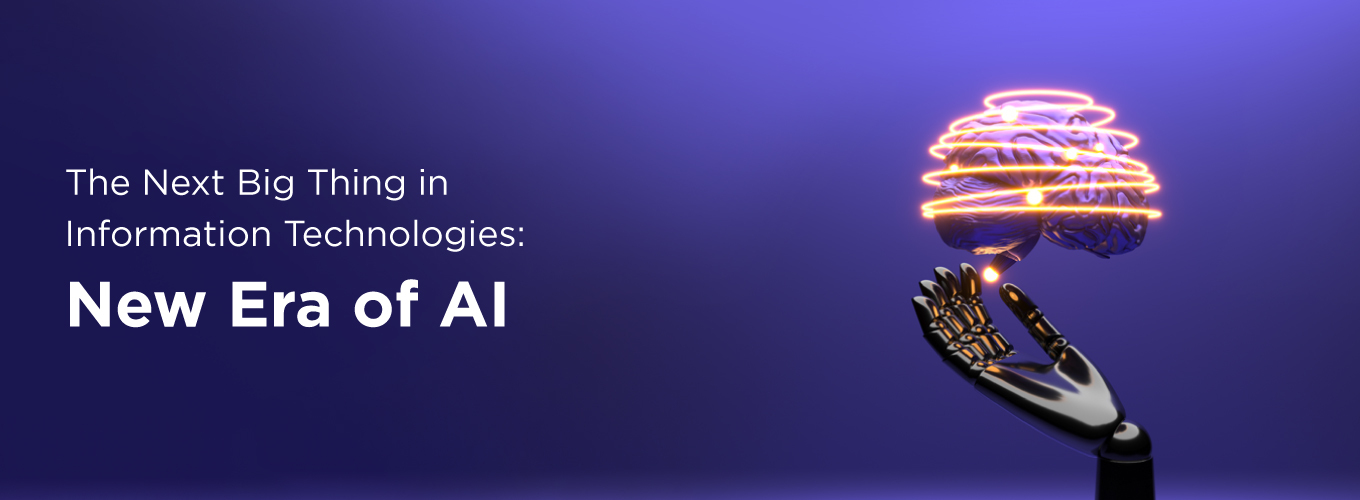Introduction
This revolutionary phenomenon is the AI. While AI would forever change the world, little could anyone have anticipated the amount to which it would envelop our lives. A change unlike any other, let us try and comprehend why AI is pronounced as the new uncontested king of Information technology and how it will define our future ahead.
Table of Contents
WHAT IS AI?
AI is the development of a computer system that performs tasks similarly to human intelligence. These jobs involve learning, understanding reasoning, solving problems, interpreting natural language, and perceiving.
Artificial Intelligence is a branch of computer science that seeks to make machines act as humans do intellectually. Such machines, fueled by complex algorithms and data, can process information, learn from it, and make decisions.
There are two main types of AI: Narrow AI (or Weak AI), which is designed with a specific task in mind; and General AI (or Strong AI), which would possess human-like intelligence across a broad range of tasks. Today, most AI applications are narrow AI ones.
HISTORY OF ARTIFICIAL INTELLIGENCE
A while ago, around 1950, the first notions of Artificial Intelligence started to appear. Everything started with the idea of building devices that could imitate human intelligence.
Alán Turing, often considered as the creator of machine intelligence, initiated the first steps in AI research, a series of events resulting in a workshop held at Dartmouth College in the summer of 1956. The majority of seminar participants subsequently became famous AI specialists for decades. In those days, they had an idea that the machine-like man having its intelligence human-like would be developed at that generation, which led to providing the funds to those projects in the way of realizing that vision.
Go to the 1980s, and A. I had experienced a renaissance. Groundbreaking ideas and algorithms in artificial intelligence, such as expert systems and neural networks, stimulated interest. AI was no longer a domain of science fiction; it was dawning into reality.
Today, artificial intelligence has become an indispensable part of our lives. AI has entered everyday applications, from voice assistants like Siri and Alexa to self-driving cars and personalized recommendations. It has changed industries, improved healthcare, and changed how we interact with technology.
AI NEW AGE
Artificial intelligence (AI) has emerged as a leading force driving change worldwide in different sectors. It’s altering how things are done by automating tasks, improving decision-making, and delivering better experiences. AI has enabled automation in places like manufacturing, logistics, and customer service, leading to better overall functioning and increasing efficiency. AI allows businesses to analyze data quickly and make more informed decisions, mainly in the financial, marketing, and healthcare sectors, with vast, complex data that provides meaning.
Artificial intelligence powers the personalized experiences we enjoy in online shopping and streaming services, tuning content and making recommendations. Regarding healthcare, AI is being applied in elements like early diagnosis of diseases and the development of new medicines, thus improving patients’ care. AI facilitates customization and responsive learning in education, aiding students and assisting workers’ career development. Nevertheless, ethical issues, for instance, privacy and bias, are becoming crucial and codes of conduct are required to apply AI for good.
THE MOST IMPACTED FIELDS AS A RESULT OF AI ADOPTION
The rapid rise in AI can be attributed to its enormous economic growth possibilities. The PWC report has shown that the application of artificial intelligence technologies has great potential to grow the global GDP by an approximation of $15.7 trillion by 2030, equivalent to 14 percent. The forecasted progress includes $7 trillion worth of improvement in China, $3.7 trillion in North America, $1.8 trillion in Northern Europe, $1.2 trillion in Africa and Oceania, $0.9 trillion in the rest of Asia (except China), $0.7 trillion in Southern Europe, and $0.5 trillion in Latin America. China deserves special notice in this regard. The Chinese National Plan seeks to invest $150 billion in AI to become the global leader in AI by 2030.
Research by the McKinsey Global Institute regarding China shows that AI-driven automation can immensely enhance the country’s economic productivity. The improvement could lead to an annual GDP increase of up to 0.8 to 1.4 percentage points, considering AI adoption rates.
The rise and advancement of t A. It is unavoidable; all we can do is accept this change and learn how to accommodate its details.
FIELDS THAT WILL PRIMARILY BENEFIT FROM ARTIFICIAL INTELLIGENCE.
FINANCE
This is a field of application where AI can shorten the time and significantly increase the productivity of the tasks. An undeniable illustration of this transformation is the stock exchanges, where most of the decision-making now prevails in the machines engaged in high-frequency trading rather than humans. To replace human intervention, computers instantly match human buy and sell orders, detecting small-scale inequities and market differentials through trading and executing trades based on investor instructions. In some cases, supercomputing, which is powered by qubits that can hold multiple values within a single cell, increases information storage capacity while decreasing processing times.
In the arena of financial systems, AI excels at fraud detection. Detecting fraudulent activities within large organizations might be challenging, but AI identifies abnormalities, outliers, or deviant cases that require deeper analysis. This proactive method allows managers to uncover issues at the initial stages, thus preventing those issues from growing into unmanageable ones.
HEALTH CARE
AI has been transformational in healthcare, providing solutions on various fronts such as drug development, therapy, and diagnostics. An interesting effect of deep learning is that in medical imaging interpretation, these algorithms help radiologists analyze X-rays, MRIs, and CT scan images, thus leading to more accurate and speedy diagnoses. For example, an AI model created by Google Health outperformed human radiologists in detecting breast cancer from mammograms.
Artificial Intelligence has reached drug discovery, speeding up the identification of potential drug targets. Companies such as Insciico Medicine are adapting AI algorithms to accelerate drug discovery, demonstrating its capability to transform the pharmaceutical sector. Furthermore, AI-powered virtual health assistants and chatbots enhance patient involvement and empowerment. They both offer and assist in the management of chronic illnesses. The healthcare system will profit from increased efficiency and lower costs.
TRANSPORTATION
In transportation, AI and machine learning have given rise to numerous inventions and autonomous driving is surely the foremost. As per the study conducted by the Brookings Institution’s Cameron Kerry and Jack Karsten, the period between August 2014 and June 2017 averaged over $80 billion worth of investments in self-driving car technology. This funding covers the field of autonomous driving and fundamental technology critical to overall industrialization.
Self-driving vehicles, commonly called cars, trucks, buses, and drones, include modern technical features such as autonomous driving, braking and lane change systems. These utilize cameras and sensors for impact evasion, constant AI processing of data, and powerful computing systems for adaptation to changing environments through detailed maps
Key to the navigation and collision avoidance functions of autonomous vehicles are Light Detection and Ranging systems (LIDARs) along with AI. GNSS receivers, usually on the roof of vehicles, may also include LIDAR systems consisting of light and radar equipment. This gets done with such systems by imaging with 360 surroundings, employing radar and light beams to determine the speed and distance of nearby objects.
CYBER SECURITY
Thanks to sophisticated machine learning techniques, AI greatly enhances cybersecurity by quickly detecting and responding to potential threats. It determines cyber risk patterns in massive datasets, thus providing proactive security mechanisms. Artificial intelligence further automates repetitive tasks such as vulnerability assessment and incident response, resulting in more frequent response times and reduced probability of human errors. This hybrid method brings together the detection of threats and automation of tasks thus improving cybersecurity resilience in the cyber threats evolutionary world.
CONCLUSION
However, we are wary of how AI will affect us. Therefore, the best we can do now is to embrace it and leverage it to our benefit rather than vice versa. Those days, we leave AI to think the day’s A I win, but as long as A I believe and help us, we will see productivity and growth like never before.
Frequently asked questions
1. How is the artificial intelligence Age in information technologies?
The era of AI in information technologies is defined as the latest developments and fundamental shifts occurring in artificial intelligence, which are transforming how information is collected, processed, and utilized across different industries.
2. What distinguishes this new epoch of AI from past breakthroughs?
Today’’s AI evolution is manifested in breakthroughs in machine learning, deep learning, natural language processing, and other AI subfields, resulting in more advanced, adaptive, and context-sensitive systems than the previous AI technology.
3. Which are the main technologies opening up the new era of AI?
Among the key technologies are advanced machine learning algorithms, neural networks, reinforcement learning, AI applications based on big data, cloud computing and edge computing.
4. What are the effects of AI on different sectors in the current era?
AI is disrupting industries like healthcare, finance, manufacturing, and transportation through automation of processes, cost reduction, and the ability to do things like predictive/preventive maintenance, personalised medicine, and autonomous vehicles.









